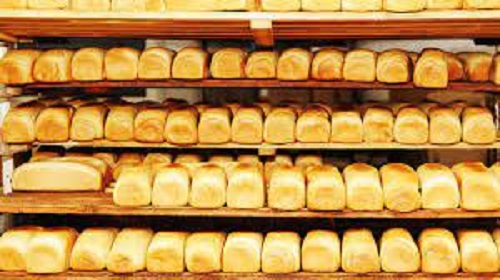This post has already been read 1702 times!
In Nigeria, the price of bread has skyrocketed, making it unaffordable for many low-income citizens. The price of food items in general has been increasing due to inflation and the devaluation of the country’s currency, the Naira.
Protests have recently broken out in Niger and Kano States over the high cost of living, including the price of bread. Local bread bakers in Kano State took to the streets, calling on the government to address the rising cost of wheat flour, the main ingredient for bread.
The bakers noted that the price of a bag of flour has increased from N16,000 to N43,000, making it unaffordable for them to continue their business. They warned that many bakers would be forced to close down if the government did not intervene.
The high cost of bread is causing significant hardship for ordinary Nigerians, particularly the poor. Bread, which used to be the cheapest and easiest food to access for low-income citizens, is now a luxury item. Many people are suffering from malnutrition and hunger as a result. The protests by bread bakers in Kano State highlight the dire situation and the urgent need for government intervention.
Some people attribute the rising cost of bread to the removal of fuel subsidies, which has increased the cost of transportation and affected the prices of goods and services. Others blame the devaluation of the Naira against the dollar, as wheat flour is imported and sellers price it based on the Naira value of the dollar. The fall in the Naira’s value and the high exchange rate make it difficult for bakers to afford wheat flour.
The rising cost of bread has had a significant impact on bread bakers themselves. Many have been forced to close down their businesses because they can no longer afford the price of flour. The protests in Kano State were led by the chairperson of the bread bakers’ association, who emphasized that the industry is predominantly run by women, many of whom are widows. The closure of these businesses not only affects the livelihoods of the bakers but also has broader implications for the public, as bread is a staple food for many.
The increase in the price of bread also affects consumers, particularly low-income families who rely on it as a cheap source of nutrition. The price of a loaf of bread has more than doubled in recent years, making it even more difficult for struggling families to feed their children. The rising cost of bread puts additional strain on already impoverished households.
The situation calls for urgent government intervention to address the rising cost of flour and alleviate the hardships faced by bread bakers and consumers. The government must find ways to stabilize the Naira’s value and address the factors contributing to inflation and price increases. Failure to address these issues could lead to further social unrest and economic instability in the country.



